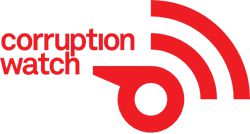Transparency in govt bids could help curb corruption, sleuth tells Zondo

These are some of the recommendations that Shadow World Investigations director Paul Holden put forward before the state capture commission on Friday as he wrapped up his testimony on money flows relating to the inner machinations of the Gupta enterprise. Holden said open contracting is beginning to yield positive results in some countries that allow for public participation in procurement processes, particularly in major government tenders of the proportion of Transnet’s R54-billion locomotives procurement.
“There is an open contracting revolution happening in many places where as standard, huge amounts of information are made available, for free, to the public about contracting ... from the issuance of tenders to the award of tenders,” he said.
Ideally, it means that members of the public would have access to details of companies bidding for state contracts, their directorships, and even information on potential sub-contractors where applicable. Equally, through debarment, the state remains vigilant over transgressors and their faults.
“Debarment is a tool that allows the state to designate an individual company or supplier to have violated good practice or good governance, usually a violation of Precca [Prevention and Combating of Corrupt Activities Act] or failure to deliver a contract,” said Holden.
“Effectively it should be that the state issues no further contracts to that company for a specified period of time.” He added that a sustained debarment system helps ensure that there is no repetition of the same errors in the award of state contracts.
Holden has been working with the commission’s investigations team over a period of two years in an effort to establish the alleged channels used by Gupta-linked companies to move money paid to them through various contracts, into what he described as a complex money laundering scheme.
According to Holden, South Africa lost around R57-billion through the capture of state owned entities and departments that have done business with companies in the Gupta enterprises through contracts awarded irregularly. His initial finding – which he shared when he appeared in May – had been that the figure stood at R49-billion, but in a more recent appearance Holden told the commission that through further digging he came to the higher figure.
He made a point that he said may be controversial in the South African environment, but has worked in countries like Norway, of creating a system of openly sharing tax details of both private companies and individuals. “There are studies that have been done in Norway that shows it increases the trust citizens have in their government, but also detects income that cannot really be justified.”
He would not boldly recommend it for South Africa, but views it as something for the commission to consider.
This article was originally published on Corruption Watch.
Source: Corruption Watch

Corruption Watch (CW) is a non-profit organisation launched in January 2012, and operates as an independent civil society organisation with no political or business alignment. CW is an accredited Transparency International chapter that fights against the abuse of public funds, relying on the public to report corruption. These reports are an important source of information to fight corruption and hold leaders accountable for their actions.
Go to: www.corruptionwatch.org.za























